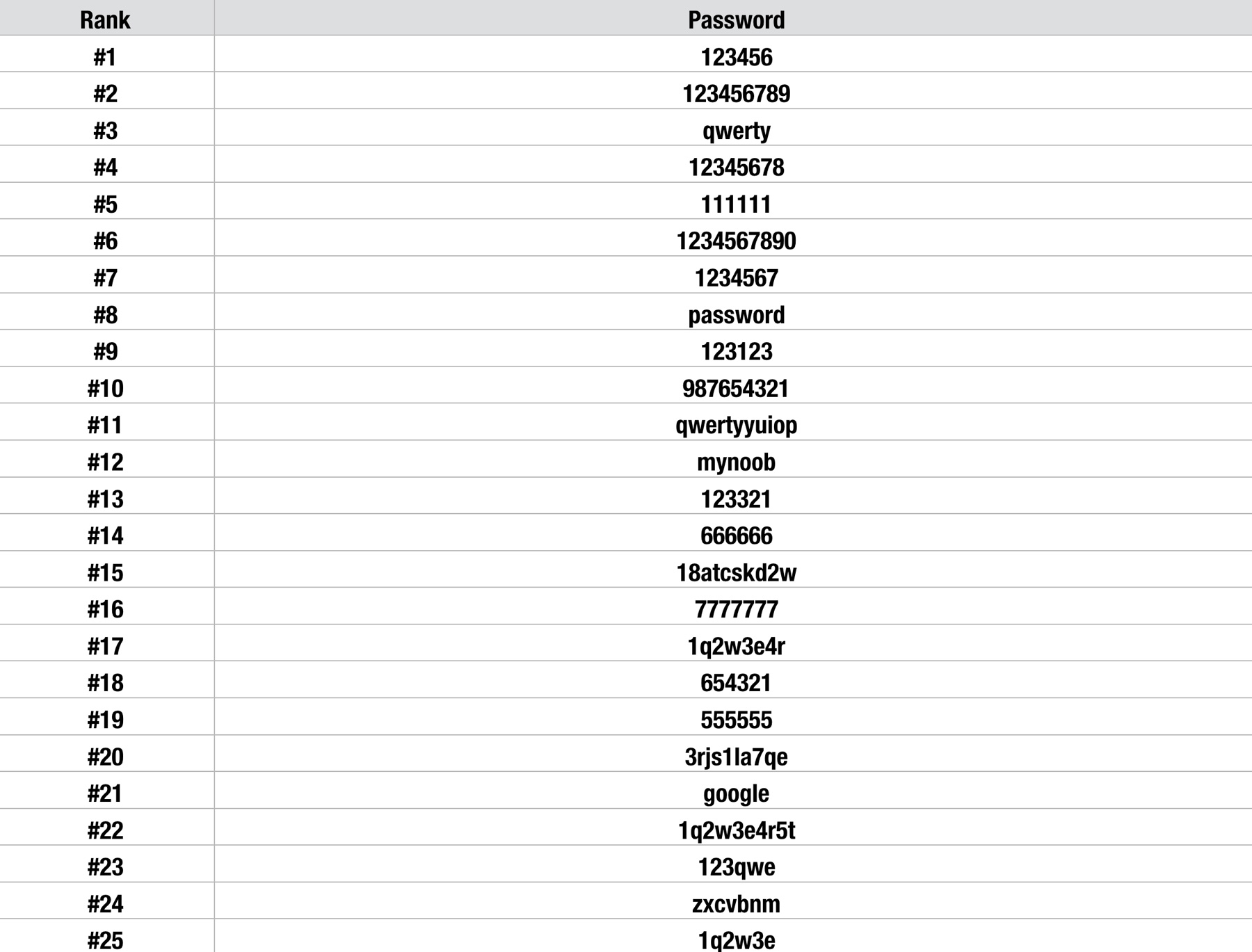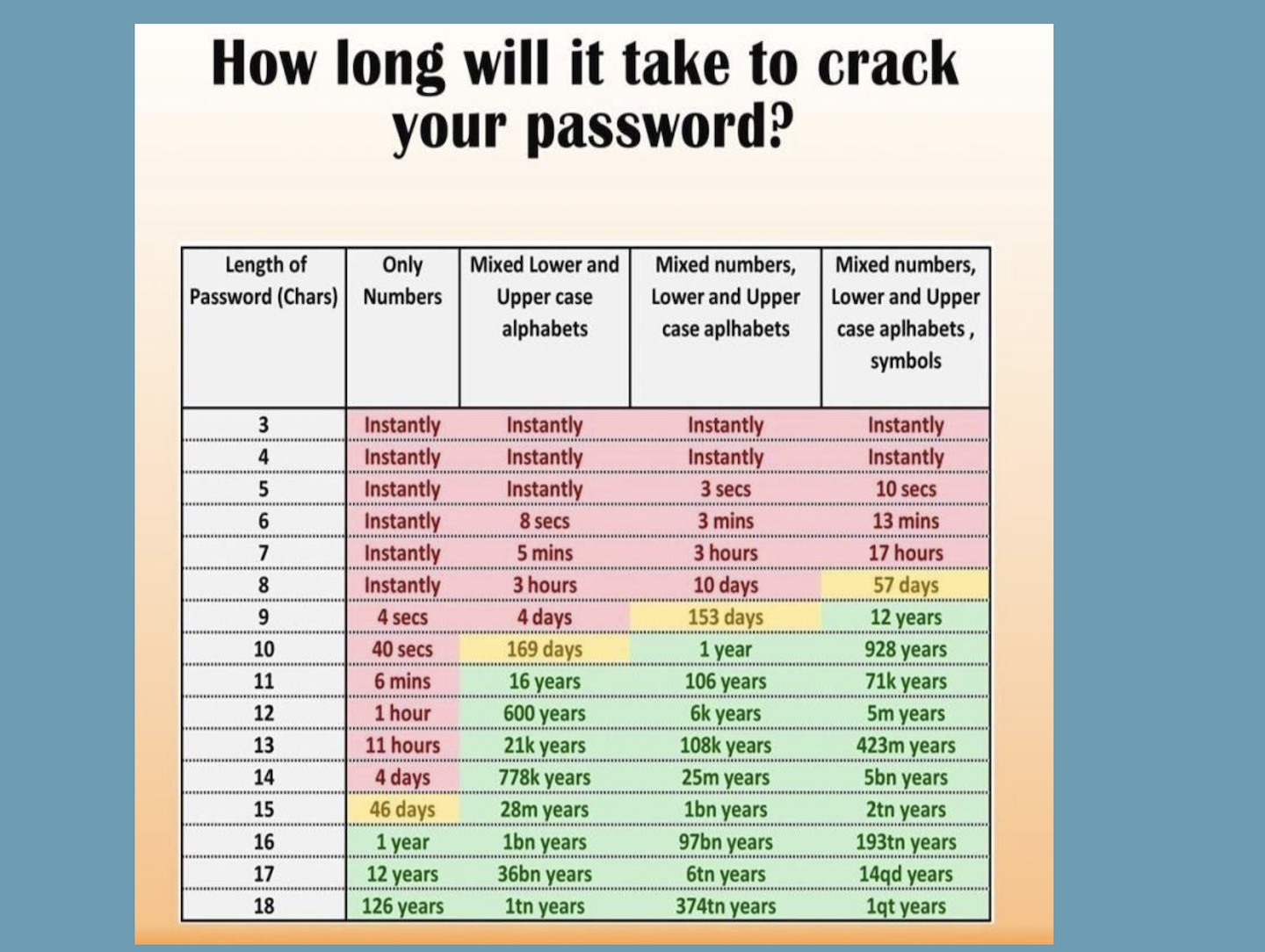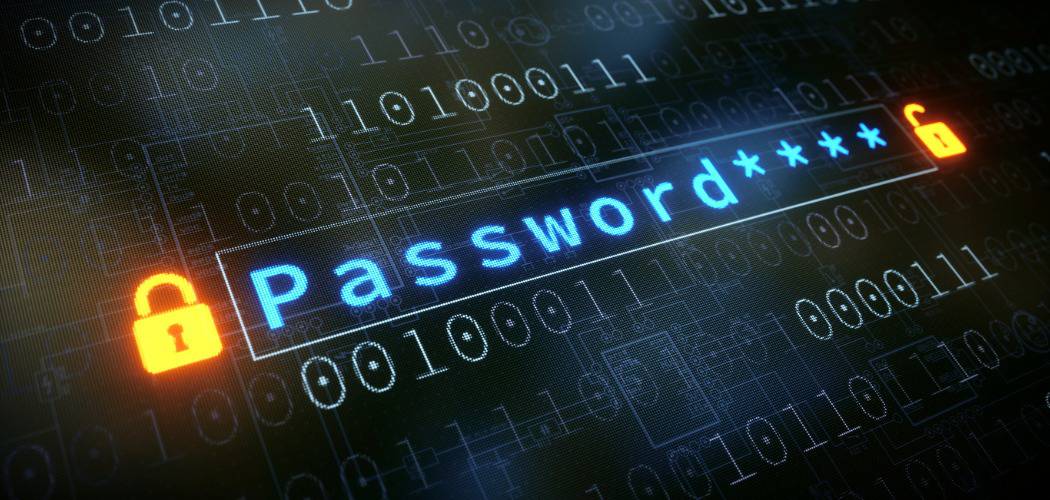This one of my password:
“SnKqBIg53hW^4tsJ5m”
When you took seriously your privacy online you need to have a password like that!
But why you need to have a ludicrous password like that?
Because a password is not the best authentication method, oh yeah for many reasons, first we can forget them and two there are useless because of data breaches, there is a huge possibility that your password and sign-on credentials already have been exposed on the internet…
Another reason is you, I’m pretty you use a very, very bad password, KeeperSecurity has analyzed compromised hacked data, and they found out heartbreaking truth about American’s password.
Here is a list of the most used in the US.

As you can tell, people tend to use bad passwords that follow predictable patterns. These predictable patterns can be exploited by hackers.
KeeperSecurity concludes that :
- The list of most frequently used passwords has changed little over the past few years… That means that user education has limits. While users need to be aware of risks.
- Four of the top 10 passwords on the list – and seven of the top 15 – are six characters or shorter. This is stunning because brute-force cracking software and hardware can unscramble those passwords in seconds. Website operators that permit such flimsy protection are either reckless or lazy.
- The presence of passwords like “1q2w3e4r” and “123qwe” indicates that some users attempt to use unpredictable patterns to secure passwords, but their efforts are weak at best. Dictionary-based password crackers know to look for sequential key variations. At best, it sets them back only a few seconds.
- Email providers don’t appear to be working all that hard to prevent the use of their services for spam. Security expert Graham Cluley believes that the presence of seemingly random passwords such as “18atcskd2w” and “3rjs1la7qe” on the list indicates that bots use these codes over and over when they set up dummy accounts on public email services for spam and phishing attacks. Email providers could do everyone a favor by flagging this kind of repetition and reporting the guilty parties.
But how does a password get hacked?
There are many tactics from Cybercriminals to hack a password, but the easiest one is simply to buy your passwords off the dark web.
Here the most popular tatics :
- Brute force attack: This attack tries to guess every combination in the book until it hits on yours. The attacker automates software to try as many combinations as possible in as quick a time as possible.
- Dictionary attack: This attack is exactly what it sounds like — the hacker is essentially attacking you with a dictionary. Whereas a brute force attack tries every combination of symbols, numbers, and letters, a dictionary attack tries a prearranged list of words such as you’d find in a dictionary.
- Phishing: That most loathsome of tactics, phishing is when cybercriminals try to trick, intimidate, or pressure you through social engineering into unwittingly doing what they want. A phishing email may tell you (falsely) that there’s something wrong with your credit card account. It will direct you to click a link, which takes you to a phony website built to resemble your credit card company.
Another question how Long will it take to hack your password?
CyberSecurity experts have created this matrix that can tell how long hackers would need to crack your password.

This is why now websites require combinations of numbers and letters, upper and lowercase, and special characters.
if you want to know how strong is your password you can test here: link
So what can you do?
It’s really simple you have to use a very strong password, but what is a strong password?
Here are the main characteristics of a good, secure password:
- Is at least 12 characters long. The longer your password is – the better.
- Uses uppercase and lowercase letters, numbers and special symbols. Passwords that consist of mixed characters are harder to crack.
- Doesn’t contain memorable keyboard paths.
- Is not based on your personal information.
- Password is unique for each account you have.
Good password examples with the time it would take to crack it:
- rMaIsTYL@neiYN!I – 1 hundred billion years
- !bfc3A5VPZ&AJoy0 – 15 billion years
- TrMdpU&X62@BXS&B – 1 trillion years

Now how are you going to memorize them?
The answer is very simple don’t memorize them, use a Password Management Software, A password manager keeps track of all of your passwords and does all the remembering for you, except for one thing — the master password which grants you access to your password manager.

I use Keepass for my Windows desktop & Keeweb for MacOs, but you can use LastPass, nordpass, Bitwarden, 1Password and so many other.
Remember to add a 2FA 🙂
- Driving Innovation: How Tech Partnerships Power Formula 1 Success - 9 December 2024
- Netflix Faces Technical Knockout During Highly Anticipated Mike Tyson vs. Jake Paul Fight - 17 November 2024
- Is the U.S. in a Recession? - 1 October 2024




























